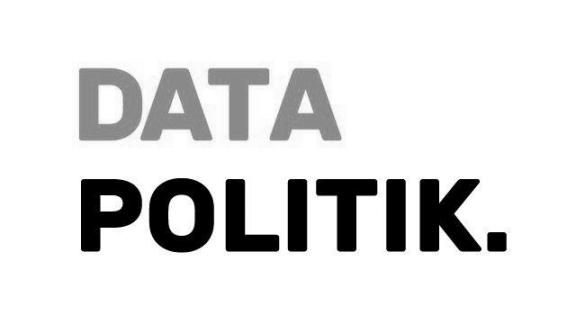
DataPolitik2023 - Politics and Communication in the Era of Big Data
Introduction
The facts
Politics and communication have been transformed in the information age. The popularity and innovation in the use of social media platforms such as Facebook or Twitter has not only enabled the increase the number of actors who can disseminate political, commercial and any other messages to a massive potential audience, but also have produced transformations that affect the entire public sphere.
These transformations have caused a double dynamic: on the one hand, the processes of disintermediation of mass communication and self-communication, which have disrupted the traditional influence map of the media, have gone hand in hand with the emergence of new media communities and practices. On the other hand, new forms of mediation and power concentration (economic, political, social...) have appeared that escape the forms of democratic control developed in the classic framework of the mass media (legal and institutional frameworks, self-regulation practices, etc.).
However, this new world that we were just beginning to know seems to be coming to an end. While we see a decline in classic platforms such as Facebook, Instagram and Twitter, new platforms such as TikTok and BeReal, which attract mainly a young and very young audience, have marked a shift in the way content is consumed and shared. A new stage with new forms of communication and challenges to face is emerging.
The consequences
The effects are manifold. Perhaps the most obvious is the growing desire for the rapid monetization of traditional platforms, which has a direct impact on the algorithmic prioritization of content and therefore the world experienced by users. The slow, but inexorable collapse of Elon Musk's Twitter is the clearest example of these dynamics, an issue that will be at the forefront of debate in this edition of DataPolitik2023.
If in their initial stages social platforms have been leveraged by marginalized groups and emerging social movements to organize and amplify their discourse, in their maturity phase hegemonic counter-counter discourses have gained prominence. How these two dynamics will be affected in the new phase we are experiencing, as well as the possibilities opened by alternative communication platforms and digital democracy to enhance online deliberation, will star in the second line of debate of these days. Finally, a third line will address the impact on the sphere of online communication of chatbots and so-called artificial intelligence in general.
Among the challenges in advancing the improvement of these networked communication dynamics, the lack of socialization of existing scientific knowledge regarding the mechanisms of production, reproduction and consumption of information in the digital environment stands out, as well as its relationship with traditional media and modes of interpretation.
Scientific research in the field of information dissemination and disinformation has advanced considerably in recent years, breaking disciplinary frameworks and generating new theoretical corpuses based on data. Disciplines from the field of human and social sciences, such as social psychology, communication science, sociology and political science, have joined forces with disciplines from the field of natural and computer sciences, such as the physics of complex systems, network theory, or machine learning, to take advantage of the enormous mass of data produced by online social interactions, with the aim of developing transdisciplinary scientific knowledge about phenomena that emerge at the intersection between communication networks and processes opinion formation. DataPolitik2023 are a moment of sharing in common, building lines of cooperation and socialization for researchers, communication agents and interested citizens. DataPolitik2023 are a moment of sharing, building lines of cooperation and socialization for researchers, communication agents and interested citizens.
Program
Wednesday, May 31st.
We will hold the round table "Traversing the land of Elon. What to do about the collapse of Twitter?" We will have the participation of Proyecto Una y Heurística, a debate moderated by Carlos del Castillo.
At Centro Cívico Cotxeres de Sants. Carrer de Sants, 79, 08014 Barcelona.
Thursday, June 1st.
Dedicaremos la mañana a la presentación de estudios y proyectos cuantitativos y cualitativos de la comunicación política en línea. El workshop está dirigido específicamente a jóvenes investigadores e investigadoras que actualmente están realizando su tesis doctoral o trabajo de fin de master. El objetivo del workshop es servir de foro de debate activo y constructivo. Los y las participantes tendrán la oportunidad de compartir sus proyectos de investigación y recibir comentarios de un panel multidisciplinar de personas expertas en forma de sugerencias, enfoques teóricos y metodológicos alternativos o bibliografía de interés. Después de comer, os proponemos tres talleres participativos: racismo, crisis climática y experimentando dinámicas de opiniones con ChatGPT.
We will dedicate the morning to the presentation of quantitative and qualitative studies and projects on online political communication. The workshop is specifically aimed towards young researchers who are currently completing their doctoral or master's thesis or master's. The objective of the workshop is to serve as a forum for active and constructive debate. Participants will have the opportunity to share their research projects and receive comments from a multidisciplinary panel of experts in the form of suggestions, alternative theoretical and methodological approaches or bibliography of interest. After eating, we propose three participatory workshops: racism, climate crisis and experiencing opinion dynamics with ChatGPT.
At Centro Cívico Ateneu Fort Pienc. Plaça Fort Pienc, 4, 08013 Barcelona.
